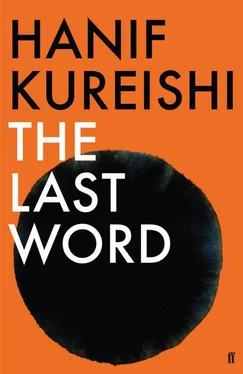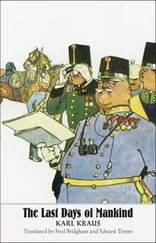When he was twelve, she died. It seemed that after she was gone he was alone for ten years. He had to get up in the dark, feed himself and cycle to school without his mother offering him a pear, cutting the crusts from his sandwiches or running after him with books and football boots. His identical brothers, four years older, were at Latymer, while he was at St Paul’s. Where the other boys had much more of their mother, he was forced, too early, into independence. And the twins had always had one another: they bickered, disputed and had bloody fist fights around the house, but there was barely a moment when they were not in resentful or eager contact with each other, almost, but not quite a closed circle.
Harry cared for himself by reading in his room, while playing his siblings’ records and tapes, and speaking constantly to his mother in his mind. The family had disposed of her other clothes, but when Harry took over her wardrobe for himself, many of her shoes remained at the back of the cupboard. It occurred to him to lie with his ear on the carpet and speak to them. Harry would make films in his mind of her choosing them and putting them on; he would wonder where she had gone in each pair, who she had been with, and what they had talked about.
He saw now that the idea of isolation he had had about himself was only partly true, a myth he’d made. He was motherless, and his father might have been at work, or attending to the house, or dating. But his brothers had never been awkward or shy. At school they were rugby and soccer stars who earned money modelling and later formed a band, the Ha-Ha Fish, playing at the opening of hip shops in Carnaby Street and the sticky back rooms of Camden pubs in front of school friends. They said if he learned bass, he could perform with them, and so he did.
A teenage girl with a mass of dark hair, in a short skirt, T-shirt and black tights, opened a bedroom door to see a little boy, younger than her, sitting on his bed blinking over a book, scratching and twisting with anxiety, a plate of food untouched. Harry’s brothers’ pals, and their numerous girl friends, were in the house constantly, and from the beginning the boy was the object of much pity and attention from young women. There’s nothing like a blond motherless child to bring the girls running with kisses, sweets and more. Who would want to give that up? The twins began to refer to the pretty little pasha’s ‘harem’, the girls who were keen to assist him with his homework, cook for him, select his clothes and cut his hair, and accompany him to the cinema, the shops and other treats at the weekend and during holidays.
A girl beginning to move away from her parents and wanting to grow up can be persuaded into appalling acts of love. Once Harry hit thirteen and began to sweat and shower, a relay of fragrant teenagers were kissing, petting and spending the night with him on sleepovers. The motherless boy hated to sleep alone; sometimes he crashed on the floor in one of his brothers’ rooms. Soon he learned that numerous girls were susceptible to his pleas for them to care for him. He needed to replace one woman with a horde of other women. From the age of fourteen he was seducing more of them than those amateurs his brothers. It would cheer his father up, when he came home, to find the house garlanded with girls in flower. ‘St Trinian’s’, he called it, or ‘the Kingdom of Pubescent Girls’. He made sure to warn Harry that he’d be envied — hated, he meant — for his gifts, charm and ease, as he got older, and that he should conceal but not suppress his virtues. Harry didn’t then understand what his father meant.
His father had a superb library: philosophy, psychology, fiction, art. That was that, for Harry; he developed himself there. Not that he didn’t miss his mother; he was still angry with her, to say the least, which was how she remained alive and active in his mind. What he didn’t want was her sitting at the end of his bed when he was alone in the country.
Now he sped through the dark winding lanes, and then ran from the car. Soon he was at the warm bar of a busy pub, and others were turning to him, the stranger, the curiosity that everyone seemed to know about. People gathered round. Apparently the locals — farmers and ageing rock stars who lived in the big houses, and their fans who lived in smaller places — were keen to hear about ‘the writer’.
Was it true Mamoon had no friends? Was he cruel to his wife, violent even? Was he a devil-worshipper? More importantly, was he really broke? And wasn’t it true that he had certainly made the most of the country which had welcomed him, and where his talent had been allowed to flourish? Hadn’t he complained too much? Had he ever been sufficiently grateful?
Nothing can be still while it lives in the minds of others, including, of course, a character and reputation. It didn’t take long, Harry saw, for a personality to enlarge and inflate, as the subject became what others preferred him to be. Like Harry’s mother, Mamoon had travelled beyond and above himself, a process Harry himself was now correcting but also abetting, in his own way. What was a person then, but a self which travelled between private fantasy and public creation?
Hadn’t Mamoon been in that place for Harry when he read and reread Mamoon’s interviews, profiles and essays in Playboy, Rolling Stone and Esquire as a young man? That Mamoon had willingly journeyed into the darkness of the contemporary world itself, and returned with testimony, witness and thought, revealed an intrepid man who was a conquistador, determined to expose and explain the harshest truths. Wasn’t he the first to track, in the dark cities of northern Britain, the change in the Muslim community from socialist anti-racism to a radicalism built around a new worldwide form, a reactionary idea of Islam? His essay ‘The Axe of Ideology’ had been crucial. Didn’t his analysis then go further, as he followed the trajectory of Islam from a form of liberation theology to a death cult demanding sacrifice, built around obedience to the law of the Absolute father?
Where was Harry in this now? Like Mamoon, Harry couldn’t just hold up the mirror; he had to explain why he was there, and what this man meant. His words had to keep the writer alive in the history of literature, however much he might want to kill him personally.
Glad to be out of the house, and to have alcohol in him, Harry felt more buoyant. The less he said to the locals the more he’d enjoy his evening. He did make the mistake of suggesting, to the irritation of those around him, and at the risk of appearing superior, that a good way to make contact with a writer might be to pass one’s eyes over his sentences. After this faux pas he thought it best to settle himself in a secluded corner of the bar where he could keep a look out for the local interest: the ardent young wife of a farmer bored by dipping sheep in antiseptic, or dragging on the udders of recalcitrant animals; or perhaps the partner of a long-distance lorry driver eternally delayed by a French strike.
Then he looked up; it was dim in the pub, but he saw what he wanted. His instinct had been correct. The skin game was on. He finished his drink. Before fetching another one, he went into the toilet, popped some money into the condom machine and pushed the button for plain rubbers. The girl who had been smiling and flicking her long hair at him appeared to be younger than he’d wanted. He didn’t need a scandal. But she had sent her friends away. Sensibly, she was standing up. She would lead him.
He was keen to follow this siren, even into a crepuscular corridor which led to the pub’s back room, an undecorated and unheated grave fragrant with urine and worse, as if the toilet was parked under a table. The drinkers were here. A hairy man with the face of a pit bull, wearing only boxer shorts and tattoos, played pool under a flickering striplight. A couple of Medusas, pulling on chained dogs, waited, squinted and cursed. Harry was afraid. He went to the girl.
Читать дальше












